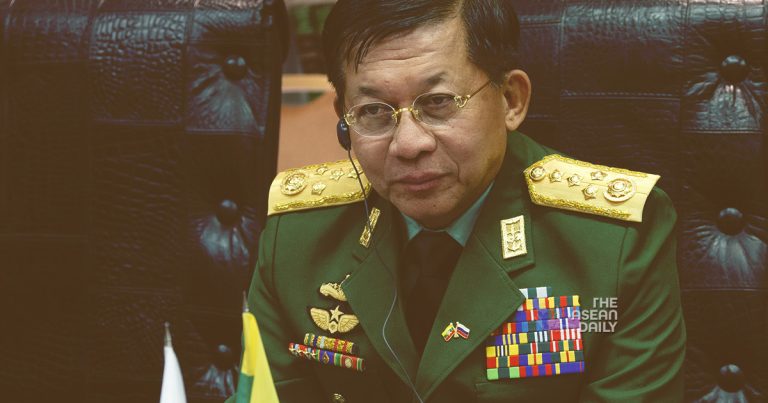25-8-2023 (YANGON) Myanmar’s military, which seized control of the government two and a half years ago, seems poised to further consolidate its power as it recently made several cabinet appointments in an effort to suppress persistent armed opposition.
These appointments, coupled with the extension of a nationwide state of emergency, indicate that the military’s priority lies in quelling the armed opposition rather than holding elections. This development is a setback for companies hoping for a return to normalcy and business operations in Myanmar in the near future.
One of the significant changes that took effect on August 3 was the appointment of Lt. Gen. Yar Pyae as the Minister of Interior Affairs, giving him control over the police and local administration.
Yar Pyae also retained his position as the National Security Adviser, which means he would lead any negotiations with armed ethnic groups that may join forces with the anti-military resistance.
Following the landslide victory of the National League for Democracy in the November 2020 general election, the military established a peace talks committee led by Yar Pyae. This move was seen as a direct challenge to the ruling party at the time, led by Aung San Suu Kyi, which faced difficulties in advancing negotiations with armed ethnic groups.
According to a source familiar with Yar Pyae, he is not as arrogant as other military officers and is known for his flexibility. The source stated that Yar Pyae has shown respect towards detained leader Aung San Suu Kyi, having met her multiple times in an attempt to find a political compromise.
However, Yar Pyae has also been a loyal aide to Senior Gen. Min Aung Hlaing, the leader of the military government. He joined the State Administration Council, the regime’s highest decision-making body, in February 2022.
A diplomatic source expressed concerns that the crackdown on the pro-democracy resistance would likely intensify with Yar Pyae in charge of the police force.
In another significant appointment in August, Gen. Tin Aung San, the navy chief, was named as the Defense Minister, replacing Gen. Mya Tun Oo, who assumed the role of Transport and Communications Minister.
This marked the first time that both the defense and interior ministers, who are directly responsible for maintaining public order, were replaced since the military takeover.
It is believed that Lt. Gen. Soe Htut, who Yar Pyae replaced as the interior minister, is facing health issues. Consequently, he was essentially demoted to a lower cabinet position.
In July, the military government appointed Nyo Saw, the chairman of a military-affiliated company, as a cabinet-level economic adviser. Nyo Saw also joined the Myanmar Investment Commission and Myanmar’s Foreign Exchange Supervisory Board.
According to a source from a foreign company in Myanmar, Nyo Saw is considered “Min Aung Hlaing’s right-hand man” when it comes to economic policy. He is expected to steer the economy alongside Lt. Gen. Moe Myint Tun, who heads both the investment commission and the foreign exchange board. Lt. Gen. Moe Myint Tun is also seen as a leading candidate to succeed Min Aung Hlaing.
The military government has also revised its five-point roadmap, outlining its objective to achieve nationwide peace, stability, and the rule of law in order to successfully hold a free and fair multiparty democratic general election.
The previous roadmap also included plans for a general election. However, the new wording suggests that the military is unwilling to hold elections unless it can suppress the armed resistance against its rule.
The military argues that the Myanmar public’s right to vote would be compromised unless an election can be conducted nationwide.
The international community is unlikely to recognize the results of any new election in Myanmar unless Aung San Suu Kyi and other National League for Democracy officials are released. The parallel National Unity Government, formed by ousted elected lawmakers, continues to support armed resistance against the military, further diminishing the prospects of an election in the foreseeable future. Even a superficial transition to civilian rule, which some businesses in Myanmar had hoped for, now appears unlikely.
The military claims that it needs to conduct a census to create an accurate voter roll. The next census is scheduled for October 2024. Given that the 2014 census took several months to complete, many doubt that the military will be able to carry out the process as swiftly as it claims.
Foreign companies that have remained in Myanmar throughout the recent turmoil have played a role in sustaining employment for the local population. However, with no clear end in sight to military rule, these companies face a challenging decision on whether to continue their operations in the country.




